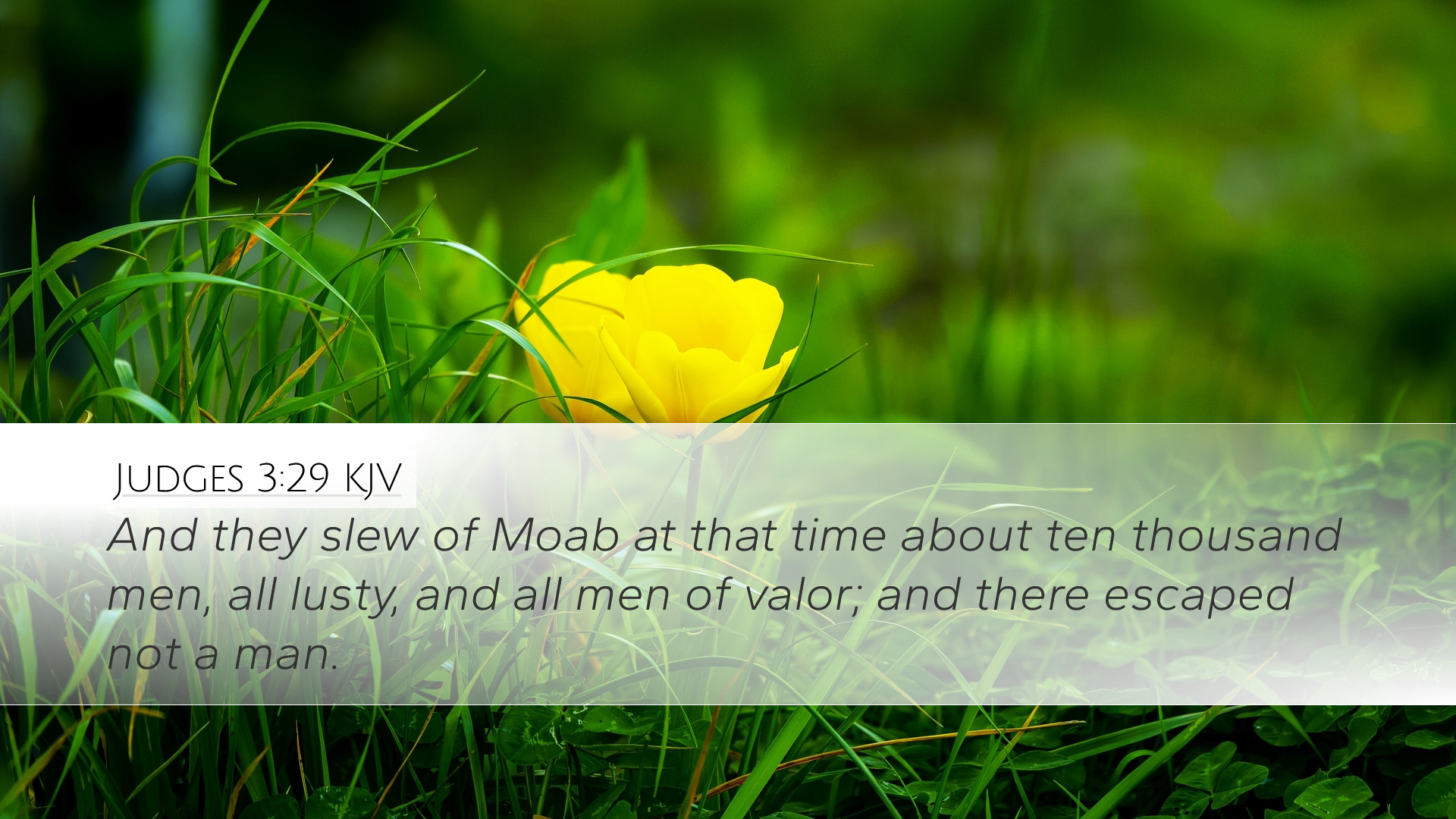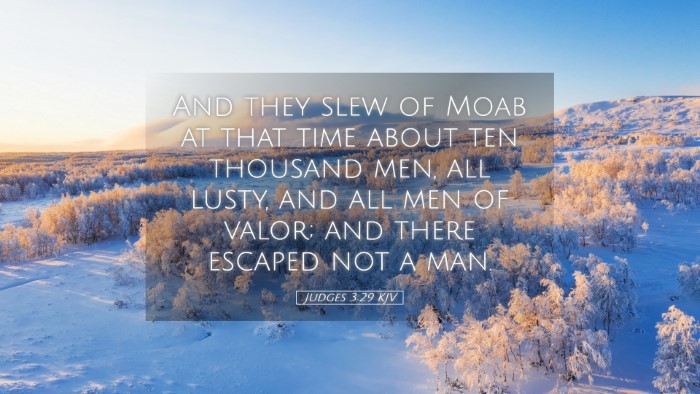Commentary on Judges 3:29
Verse Context: Judges 3:29 states, "And they slew of Moab at that time about ten thousand men, all lusty, and all men of valor; and there escaped not a man." This verse captures a significant moment in Israel's history where divine intervention leads to triumph over their oppressors, the Moabites, under the leadership of Ehud.
Historical Background
This passage occurs during a period of chaos and disobedience in Israel, marked by cycles of sin, oppression, repentance, and deliverance. After Israel fell into sin, God allowed the Moabites to dominate them. Though the Israelites were often unfaithful, God remained committed to delivering them when they cried out for help.
Theological Insights
Divine Deliverance: The swift defeat of the Moabites illustrates God's power to save His people from their enemies. According to Matthew Henry, “This deliverance shows God's readiness to help those who call upon Him in their distress.” The victory was not merely a military success but a testament to God’s sovereign rule over nations.
Commentary Excerpts
-
Matthew Henry: Henry highlights the decisive nature of Ehud's victory, noting that “these men of valor, who were slain, stood as the chief combatants against Israel’s destiny.” He emphasizes the importance of the numbers—ten thousand—indicating not just a statistical success, but the complete destruction of the threat to Israel.
-
Albert Barnes: Barnes focuses on the phrase “lusty, and all men of valor.” He interprets this as a description of the strength and ability of those defeated. This serves to underscore the miraculous nature of Israel's victory, contrasting their own weakness with the formidable power of their adversaries.
-
Adam Clarke: Clarke suggests that the totality of the victory is symbolic. He purports that the complete annihilation of these men signifies God’s cleansing of the land of its impurities that stemmed from idol worship and moral decay.
Practical Applications
Faith in Action: The account challenges believers to step out in faith, just as Ehud did, wielding the tools God has given them—be it wisdom, courage, or resourcefulness. The victory is a reminder that God often empowers the seemingly weak to accomplish His purpose.
Reflection for Pastors:
Pastors can draw from this story an important sermon theme regarding God’s ability to deliver His people from oppression and spiritual bondage. It underscores the importance of faithfulness and calls for leaders to remind congregations about the sovereignty of God in every circumstance.
Insights for Theologians:
Theologically, Judges 3:29 invites deeper discussions on the nature of divine justice and mercy. It illustrates how communal sin can lead to widespread judgment, yet God’s mercy reigns when His people return to Him for deliverance. The completeness of the victory raises questions about the interplay between divine will and human action.
Suggestions for Scholars:
Biblical scholars might consider the socio-political implications of Ehud’s action within the broader narrative of Israel's history. Analyzing the motivations and actions of both Ehud and the Moabites can reveal insights into the human condition and the nature of spiritual warfare.
Conclusion
Judges 3:29 serves as a vital reminder of God's faithfulness in delivering His people and the power of courage and obedience. As we examine this verse, we are called to reflect on our own lives, our communal worship, and our responses to God’s call to action in the face of adversity.


